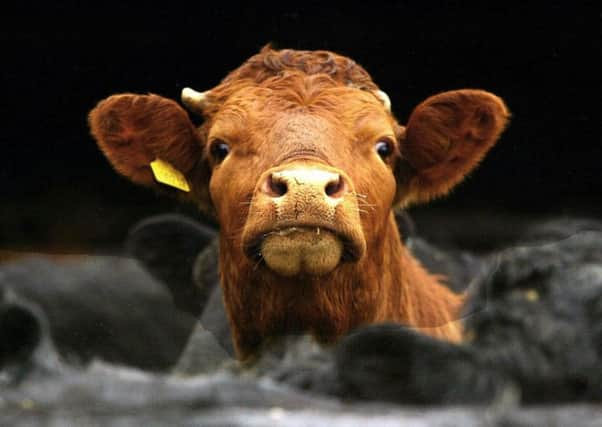Beef farms urged to grab chance to build business


Perthshire beef farmer and chairman of Quality Meat Scotland, Jim McLaren, said the initiative had the potential to deliver “real benefits” for individual businesses and help improve the national herd.
While all eligible producers had been sent record books earlier in the year, producers still had to sign up to the scheme through the ScotEID website. And with the original window for applications set to close at the end of May, McLaren urged all producers of beef calves to sign up.
Advertisement
Hide AdAdvertisement
Hide AdHe said: “This is a great opportunity for the Scottish beef industry to take a concerted step forward.”
Recognising that the scheme had generated considerable attention in recent weeks, McLaren said it was vital producers were aware of its benefits.
He said that the £45 million scheme – which will pay farmers the equivalent of around £32 a head for the first three years – was part of the aid package for the Scottish beef sector, first announced back in 2014. Delivered through Rural Development funding, the scheme keys into the agri-environment climate change monies.
However, he also acknowledged the scheme was not without imperfections – with the potential to cause frustration – emanating partly from what many had seen as the confusing fact that payments were converted to an area-based rate but also because businesses increasing their herd size would see their rates remain based on their 2015 numbers.
He said: “Conversely, if your business is downsizing then your payment will not reduce provided you have enough animals to tissue sample each year. That equates to 20 per cent of the original number of animals during the reference period.”
McLaren said that numbers couldn’t be altered as it was against EU rules for the scheme to be seen to be driving production either up or down.
He said another concern voiced by producers was fears over the accidental misreporting of calves sires, but he said that while producers must do their best to get this right, honest mistakes would not incur cross-compliance penalties.
